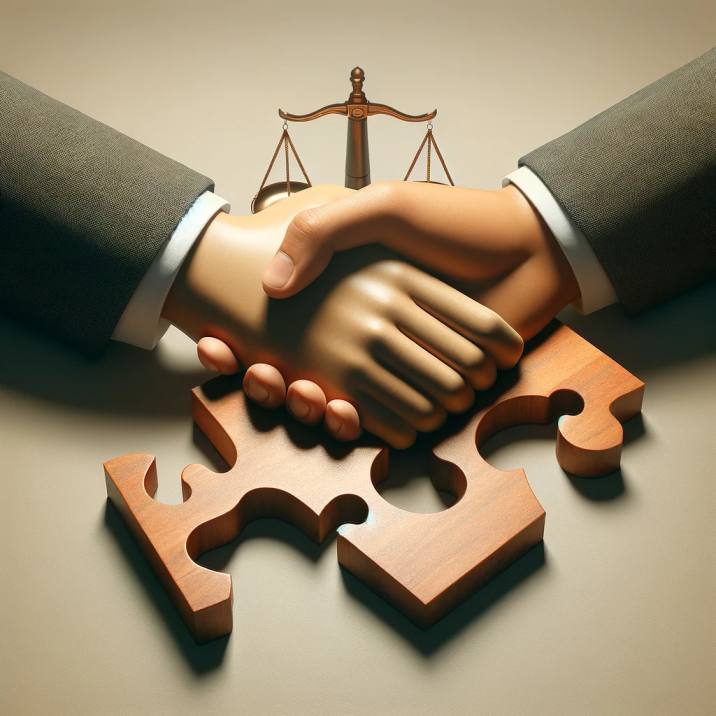In this article we have explained How to protect my rights as a consumer
How to protect my rights as a consumer
Recognizing Your Basic Consumer Rights
In today’s bustling marketplace, protecting your rights as a consumer is crucial. Understanding these rights is the first step in ensuring that you’re treated fairly and effectively in every transaction.
The Right to Information
Making Informed Choices
As a consumer, you have the right to accurate and sufficient information about products and services. This includes details about prices, ingredients, and potential risks. Being well-informed helps you make choices that align with your needs and values.
The Right to Safety
Prioritizing Consumer Safety
Your safety is paramount. Products and services should not pose any health or safety risks. As a consumer, you should be aware of any recalls or safety warnings associated with products you use.
The Right to Choose
Ensuring Variety and Quality
The market should offer a variety of products and services at competitive prices, allowing you to choose freely. This diversity ensures that you have access to high-quality options.
The Right to Be Heard
Voicing Opinions and Complaints
Your feedback, whether positive or negative, is essential. Companies and regulatory bodies should provide channels through which you can voice your concerns or complaints.
Taking Action to Protect Your Rights
Being Proactive
Steps to Safeguard Your Rights
To protect your rights, stay informed about consumer laws and regulations. Keep abreast of current news and updates in consumer rights legislation.
How to File a Complaint
Effective Ways to Address Grievances
If your rights are violated, it’s important to know how to file a complaint. This usually involves contacting the company directly, and if unresolved, escalating to consumer protection agencies.
Leveraging Social Media
The Power of Online Platforms
Social media can be a powerful tool for voicing concerns and seeking resolutions. Many companies are quick to address issues that are publicly highlighted on these platforms.
Seeking Legal Advice
When to Consult a Professional
In situations where your rights are seriously infringed upon, seeking legal advice might be necessary. Lawyers specializing in consumer rights can offer guidance and help in pursuing legal action if needed.
Conclusion: Empowerment Through Awareness
Your Role in the Consumer Ecosystem
Understanding and asserting your rights plays a significant role in the consumer ecosystem. By staying informed and proactive, you contribute to a fairer, more responsible marketplace.
Final Thoughts
Protecting your consumer rights starts with awareness and action. By understanding your rights, voicing concerns, and utilizing available resources, you can safeguard your interests and contribute to a more ethical marketplace.
FAQ (FREQUENTLY ASKED QUESTIONS)
- What are my basic consumer rights?
You have the right to safety, to be informed, to choose, and to be heard. - How can I ensure a product is safe?
Check for safety certifications, read reviews, and stay updated on recalls or warnings. - Where can I find information about product recalls?
Government consumer protection websites often list current recalls and safety alerts. - What should I do if a product is unsafe?
Stop using it immediately and report it to the manufacturer or a consumer protection agency. - How can I be an informed consumer?
Research products/services before purchasing and stay updated on consumer news and laws. - Is it important to read terms and conditions?
Yes, they often contain crucial information about your rights and obligations. - Can I return a product I’m not satisfied with?
This depends on the store’s return policy and the reason for return. - How can I complain about a faulty product?
Contact the retailer or manufacturer, and if unresolved, escalate to a consumer protection agency. - What is a warranty and how does it protect me?
A warranty is a guarantee that the product will work as claimed, offering repair or replacement if it doesn’t. - Are online purchases covered by consumer rights?
Yes, online purchases are covered by the same consumer rights as in-store purchases. - How can I protect my personal data when shopping online?
Shop on secure websites, use strong passwords, and be wary of sharing personal information. - What should I do if I’m overcharged for a product?
Report the issue to the retailer. If it’s unresolved, contact a consumer rights organization. - Can I trust product reviews?
While helpful, be cautious as some reviews may be biased or fake. - What is false advertising and how can I report it?
False advertising is misleading information about a product. Report it to advertising standards authorities or consumer protection agencies. - How do I know if a discount is genuine?
Compare prices from multiple sources and be wary of unusually high discounts. - What are the risks of ‘buy now, pay later’ schemes?
They can lead to overspending and debt if not managed carefully. - How can I avoid online scams?
Be skeptical of offers that seem too good to be true, and never share personal information with unverified sources. - What is a cooling-off period?
It’s a set period during which you can cancel a contract or purchase without penalty. - Can I refuse to pay for a service not rendered as promised?
Yes, if a service is not provided as agreed, you may refuse payment or seek a refund. - What is a class action lawsuit in consumer rights?
It’s a legal action taken by a group of consumers who have suffered similar harm from a product or service. - How do consumer rights vary internationally?
Consumer rights can vary greatly between countries, so it’s important to understand local laws when purchasing internationally. - What is an ombudsman in consumer protection?
An ombudsman is an independent service that helps resolve disputes between consumers and companies. - How can I avoid impulse buying?
Set a budget, make a shopping list, and give yourself time to think before purchasing. - What should I do if my identity is stolen during a transaction?
Report it to the authorities, inform your bank, and monitor your credit reports. - How can I stay updated on my consumer rights?
Follow consumer protection blogs, subscribe to newsletters, and join relevant social media groups. - What are sustainable consumer practices?
These are practices that involve purchasing products that are ethically sourced and environmentally friendly. - Can I get a refund for a digital product?
This depends on the retailer’s policy and the reason for the refund request. - What rights do I have regarding service contracts?
You have the right to clear information, fair terms, and services provided with reasonable care and skill. - How can I ensure a credit card dispute is handled fairly?
Provide all necessary documentation to your credit card company and follow their dispute resolution process. - Are there special consumer protections for seniors?
Yes, many regions have specific protections for seniors, addressing issues like telemarketing scams and health care fraud
Sources:-
















